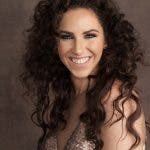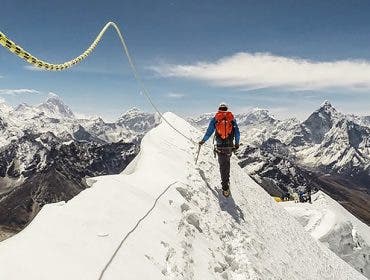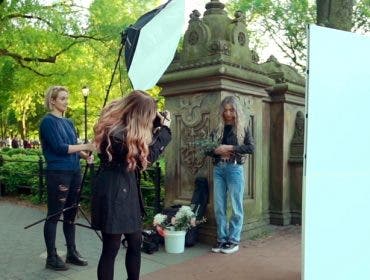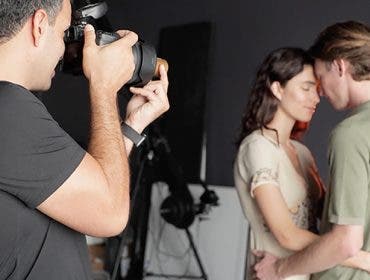
Lindsay Adler
Lindsay Adler is a fashion photographer, educator, and author based in New York City. You can follow her work and see her photography on her website, lindsayadlerphotography.com, or on Instagram @lindsayadler_photo.
I often create depth and visual interest in my studio lighting by layering grids. Rather than one light evenly illuminating the scene, I use more restricted light (with grids) to help create pockets of light that result in separation and depth. Let’s take a look at the example in this video!
The first setup in this scene is created with a Profoto strobe and a white beauty dish (sometimes known as a ‘soft light reflector’). The light is flattering on the subject but the way it illuminates the scene is a bit distracting. There is too much light on the top left-hand side of the frame and a big heavy shadow on the bottom right-hand side of the frame. The shot looks flat and lacks finesse.
To give me more control, I use a grid on the beauty dish to concentrate the light on my subject. The light begins to fall off (get dark) from her hips downwards and the background becomes much darker. Just adding a beauty dish grid adds drama, but unfortunately, the subject blends into the background too much. The shot still looks flat.
To fix this I add a second strobe with a 10-degree grid to the background. This gridded strobe creates a glowing halo of light behind the subject, perfect for separating her out from the background.
When you look at the completed two-light shot, you can see how grids create control and by layering two gridded lights I am able to create depth.
Want to find out more about studio grid light and how it can enhance your photography? Take a look at these guides on 42 West:
- NAMM 2020: Novation Introduces Launchpad Pro MKlll, a Production Grid Controller for Ableton Live
- Profoto A1: Studio Lighting in the Palm of Your Hand
- Key Lights, Fill Lights, Hair Lights and More: Different Lighting Uses For Studio Strobes
PRODUCTS USED:






